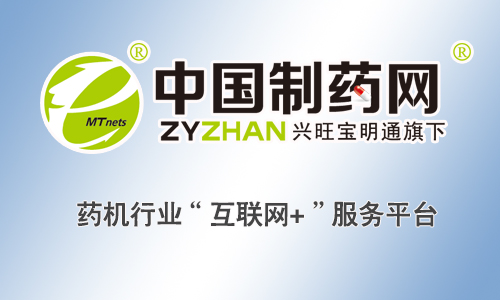Breaking stereotypes AI in the field of pharmaceutical research and development
Dehydrated Tomato Flakes,Dehydrated Tomato Powder,Dehydrated Dried Vegetables Tomato,Healthy Pure Dehydrated Tomato Laiwu Manhing Vegetables Fruits Corporation , https://www.manhingfood.com
In the game with the World Go Champion, people are amazed at the freedom of the Alpha dog, and they are desperate to seek defeat. Recently, the driverless car developed by Baidu appeared in the Beijing Five Rings, igniting the paradox...The current artificial intelligence (Artificial intelligence) , AI) has increasingly involved in all aspects of our lives. Similarly, in the field of pharmaceutical research and development, AI is also very popular.
In June of this year, Takeda Pharmaceutical and Numerate reached an agreement that the AI ​​developed by Numerate will help Takeda Pharmaceutical develop drugs for the tumor, digestive system and nervous system; also last month, the GNS health care institution in Cambridge, Massachusetts and the Roche subsidiary gene Tektronix reached an agreement that will use GNS's AI platform to delve into the factors that influence the effectiveness of current cancer treatments; in May this year, Sanofi and Exscientia reached a $280 million milestone payment agreement, and Exscientia helped Sanofi design diabetes treatment and A drug for cardiovascular disease.
For a long time, pharmaceutical developers have been skeptical about AI, but recently AI and pharmaceutical companies have frequently joined forces to break this stereotype. Because AI is facing the "pain" of medical research and development - a high clinical failure rate.
The traditional medical research and development model is time-consuming and labor-intensive, and the success rate is not high. According to statistics, the probability of a successful drug candidate entering the clinical phase I is only 10%, and about 50% of the drugs that fail to develop are due to lack of efficacy. A possible cause of lack of efficacy is the choice of the wrong target, and AI may help reduce the risk of drug development failure due to lack of efficacy.
In the field of drug research and development, AI is moving from the corner of the corner to the center of the stage. Perhaps the most famous drug discovery machine is IBM's Watson. In November 2016, IBM and Pfizer reached an agreement to help the latter develop tumor immunology drugs. Watson discovers drugs by quickly discovering and analyzing vast amounts of literature, laboratory data, clinical reports, and more. At present, biomedical information is exploding, and researchers need some machines that can learn independently to cope with massive data. At present, there are some practices in which AI is involved in drug research and development, as shown in Table 1. 
In researching such as driverless cars, natural language processing, AI has upgraded complex multilevel artificial neural networks, also known as deep-learning algorithms, which can now be used. Apply to drug development. Numerate is one of many AI companies that try to apply AI to every stage of drug development, from virtual screening of compound targets to design and optimization of compound structures, as well as drug absorption, distribution, metabolism, Model of excretion and toxicity. Numerate is working with Takeda Pharmaceuticals to provide clinical candidates for the latter.
Not only to serve pharmaceutical companies, AI also shows its talents in the academic circle. Atomwise, a branch of the University of Toronto, has established the AtomNet platform, which plans to screen 10 million compounds. This year, it provides free services to drug laboratories in more than 100 universities. Atomwise provides 72 potential candidates for each laboratory based on the selected targets of each laboratory.
However, AI can eventually become a tool for medical research and development and faces many challenges. The first difficulty is the availability of data. Big data companies have collected clinical data that they have been able to share since 1980, and many companies have joined the exploration of compound sharing and new drug use. For example, GlaxoSmithKline is sharing their experimental data, genetic data, pharmacology, and pharmacokinetic data with ATOM. Despite this, the raw data of large pharmaceutical companies is rather messy and requires an orderly digitization.
Another difficulty in the application of AI in drug development is the cost issue. In areas such as computer vision, researchers can get huge data sets because the cost per data point is minimal. But in the pharmaceutical world, each data point is quite expensive, which requires researchers to develop an algorithm that does not rely on massive amounts of data. Researchers at Stanford University in California are working on this, and they have developed an algorithm that relies on a small amount of data and requires only a few simple studies to predict the performance of the drug.
With the continuous upgrade of computer computing power and the continuous improvement of deep learning algorithms, AI seems to have a profound impact on drug development. It is estimated that the amount of small molecule drugs is about 1060. Future drug developers may need to build n new models based on limited data at hand before making each decision, and achieve 1060 searches as much as possible.
In the field of AI, Google Brain has long been known, this is Google's deep learning project. Google brings together the world's top AI development talent and is currently expanding its bioscience team, which recently completed the interface between quantum chemistry and deep learning technology. According to industry analysts, in the near future, Google will set up an AI-driven drug development company.
Everyone is discussing the potential of AI in the field of drug discovery and it seems to have a bright future. But in fact, most pharmaceutical giants are still holding a wait-and-see attitude toward AI. Because bioinformatics has not had a positive impact on the success rate of drug development so far. In the field of pharmaceutical research and development, AI must bring success stories, and only then can we lead more pharmaceutical companies into the AI ​​era.